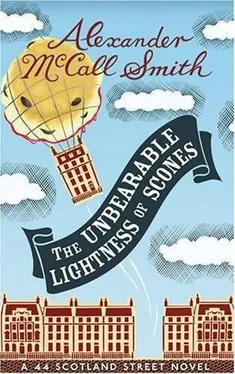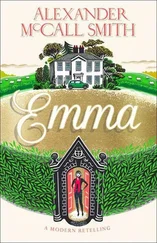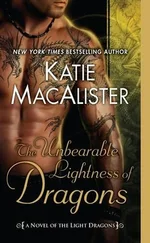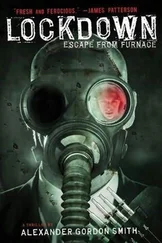Alexander Smith - Unbearable Lightness of Scones
Здесь есть возможность читать онлайн «Alexander Smith - Unbearable Lightness of Scones» весь текст электронной книги совершенно бесплатно (целиком полную версию без сокращений). В некоторых случаях можно слушать аудио, скачать через торрент в формате fb2 и присутствует краткое содержание. Жанр: Триллер, на английском языке. Описание произведения, (предисловие) а так же отзывы посетителей доступны на портале библиотеки ЛибКат.
- Название:Unbearable Lightness of Scones
- Автор:
- Жанр:
- Год:неизвестен
- ISBN:нет данных
- Рейтинг книги:4 / 5. Голосов: 1
-
Избранное:Добавить в избранное
- Отзывы:
-
Ваша оценка:
- 80
- 1
- 2
- 3
- 4
- 5
Unbearable Lightness of Scones: краткое содержание, описание и аннотация
Предлагаем к чтению аннотацию, описание, краткое содержание или предисловие (зависит от того, что написал сам автор книги «Unbearable Lightness of Scones»). Если вы не нашли необходимую информацию о книге — напишите в комментариях, мы постараемся отыскать её.
Unbearable Lightness of Scones — читать онлайн бесплатно полную книгу (весь текст) целиком
Ниже представлен текст книги, разбитый по страницам. Система сохранения места последней прочитанной страницы, позволяет с удобством читать онлайн бесплатно книгу «Unbearable Lightness of Scones», без необходимости каждый раз заново искать на чём Вы остановились. Поставьте закладку, и сможете в любой момент перейти на страницу, на которой закончили чтение.
Интервал:
Закладка:
“Let’s change the subject,” said Matthew. “Let’s not talk about dreams. Tell me, Elspeth, what was your father like?”
She thought for only the briefest moment before she answered. “You,” she said.
18. The Blind Biker of Comrie
Matthew thought: perhaps it’s true, perhaps I really am like Elspeth’s father, and she, in turn, is like my mother. Perhaps we really have fulfilled the old saw that one marries one’s parents. And what had Freud said? That at the conjunction of two there are four other people present? That was an observation invested with great unsettling power: that we are not ourselves, our own creation, reduces us rather more than we might wish to be reduced. And yet there was the social self, was there not, which was undoubtedly the creation of others, of tides of history, of great sweeps of human experience over which we had exercised no control; and ultimately the creature, too, of tiny strands of DNA bequeathed, wrapped, handed over to us as a present at birth – a little parcel bomb to carry with us on our journey.
What did he know about Elspeth’s father, Jim Harmony, whom he had never met, and who existed for him merely as a photograph on Elspeth’s table?
“My father, Jim,” she had said as they packed up the contents of her flat in preparation for her move to India Street.
He took the small, silver-framed portrait and examined it. The frame was worn, with the silver-plating rubbed away across the top and sides, but the photograph inside seemed fresh enough.
“That was taken in Bridge of Allan,” said Elspeth. “Years ago. They lived there then, and I did too, of course, until I was eighteen.”
“Bridge of Allan,” muttered Matthew. It was the right place for her to come from; a reassuring small town of the sort that one found scattered throughout Scotland.
“He worked for an insurance company,” said Elspeth. “He was a loss adjuster, and he used to cover Stirling, Linlithgow, Falkirk – places round there.”
“Loss adjusters have to be tough,” said Matthew. He looked at the picture. Jim Harmony’s face was not a tough one. If one had to pick an adjective to describe it, then the best choice, he thought, would be kind.
Elspeth shook her head. “He wasn’t tough,” she said. “He was the kindest man I ever met. A most trusting man too. I think that he approved just about every claim.”
“I’m sure that’s right,” said Matthew, looking down at the picture again. “He has that sort of face.”
“He had to retire early because he began to have problems with his eyes,” said Elspeth. “So they went up to live in Comrie when I came to Edinburgh to do my teacher training. They sold the house in Bridge of Allan and bought a small house in Comrie. They were very happy there.
“My father had always been a keen amateur mechanic,” Elspeth went on. “My grandfather had been a diesel mechanic with MacBrayne’s, the ferry people. And he passed on some of that to my father, who was always tinkering with old cars he bought. He did them up and then sold them, not at much of a profit, but enough to fund the next one.
“His favourite car was a Citroën. You know the sort of old Citroën, with a wide running board, that Inspector Maigret used to drive? That sort. The Citroën Traction. Well he had one of those, which he had made from two old Citroëns that had had an accident. He grafted the front of one onto the back of the other – so it was really two cars. It didn’t drive quite straight as a result; it drove almost sideways.”
Matthew listened, fascinated. He had known none of this, and he found the story curiously poignant: Jim Harmony, the kind loss adjuster, going to live in Comrie with his wife and his crab-like double Citroën…
“He was a biker too,” Elspeth continued. “He always had motorbikes. He had an old BSA 250 and a bike called an Aerial, or that’s what I thought it was called. It was painted grey and had a small badge featuring a pair of wings. I remember that badge from when I was a little girl.
“When he lived in Comrie he stopped driving the Citroën so much and he took to using his bike. He used to go to rallies for veteran bikers. I went to one or two of these with him, and I remember the talks that they had in the evening. One which I particularly remember was: what sort of bike were you riding when President Kennedy was shot? That sort of thing. They saw the whole world through their bikes, you see.”
She paused, gently took the photograph from Matthew, and slipped it into a packing case. “It was very hard for him, losing his sight. I thought that this would stop him from riding his bike, especially when it got so bad that he had to get a guide dog. But you know what he did? He trained the guide dog to run alongside the motorbike. That’s how he did it. That’s how he became the only blind biker in Scotland.”
Matthew listened in astonishment. “Do you mean…”
“Yes. The dog was called Rory and he used to run alongside the bike, with my father holding his lead in one hand and the other hand on the handlebars of the motorbike. Of course he couldn’t go all that fast, as Rory used to get tired after a while, but he once went all the way from Comrie to Crieff and back again.”
“But surely it was illegal?” Matthew stuttered. “Surely you can’t use a guide-dog to lead a motorbike…”
Elspeth shrugged. “I didn’t think it was very wise. My mother and I tried to persuade him to give it up, but he was very independent in his outlook and he loved biking. He really loved it.”
Matthew did not know what to say. “Well…”
“And it worked all right for about a year,” said Elspeth. “Then…”
She left the sentence unfinished. “He was such a good man,” she said, her voice faltering.
Matthew reached out and took her hand. “I’m sure he was,” he said. “I would have liked your father very much. I’m sure I would.” Even if I would not have ridden pillion with him – the unexpressed rider: no rider. He thought he knew how she felt. He thought he knew how it was to lose a father, although he had not lost his, not entirely. And what, he might have asked himself, but did not, what is it like when a whole society, a whole culture, loses its father?
19. Heavenly Thoughts
For Bertie, the departure of Elspeth Harmony from the Steiner School was the first real loss of his life, just as it was for many other members of the class. The child yearns for things to remain the same. He knows that this cannot be, that his little world contains within itself the seeds of its transformation into something else; but awareness of what is coming rarely softens the blow.
Of course there was a great deal in Bertie’s life that he would have liked to change, and, had he made a list of these things, his mother would have headed it. Not that he did not love his mother; he loved her deeply, as every small boy must do, but he wished that she could somehow be a different person. That is not to say that he wished he had, for instance, Tofu’s mother, or Olive’s mother, as his own mother; he wanted to keep Irene in her external particulars, but nevertheless completely changed in attitudes, voice and register. He wished, then, that Irene would become a completely different person. And once that happened, this new person, this new mother, would not see the need for psychotherapy, would not converse in Italian, would not insist on yoga, and would rarely, if ever, mention the name of Melanie Klein.
Bertie wondered how this transformation might be achieved. He was a little boy of wide reading, and had come across several examples of complete change. There was St. Augustine, for instance, who had, Bertie understood, been a bad man and had become a good one. But that entailed religion, and Irene had never shown any signs of religious belief; in fact quite the opposite. When Bertie had innocently asked her where she thought heaven was, Irene had replied that it was here and now, and that we could create it if only we brought into existence the right social and political arrangements, as advocated, she indicated, by the leading articles in The Guardian .
Читать дальшеИнтервал:
Закладка:
Похожие книги на «Unbearable Lightness of Scones»
Представляем Вашему вниманию похожие книги на «Unbearable Lightness of Scones» списком для выбора. Мы отобрали схожую по названию и смыслу литературу в надежде предоставить читателям больше вариантов отыскать новые, интересные, ещё непрочитанные произведения.
Обсуждение, отзывы о книге «Unbearable Lightness of Scones» и просто собственные мнения читателей. Оставьте ваши комментарии, напишите, что Вы думаете о произведении, его смысле или главных героях. Укажите что конкретно понравилось, а что нет, и почему Вы так считаете.












